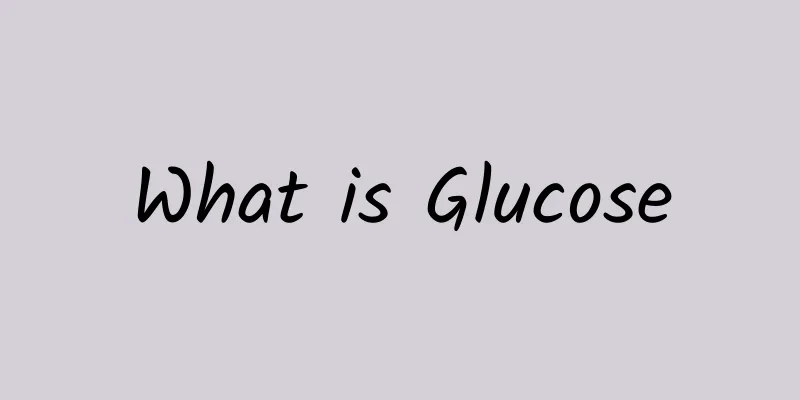What is Glucose

|
We often hear the name of glucose, so is glucose the sugar made from grapes? The answer is no. Glucose is referred to as glucose. Glucose is also called corn glucose and maize sugar. Glucose is a monosaccharide and has a prominent position in nature. Glucose is widely used in many fields, and we can also make glucose. Glucose has a wide range of functions and effects. Our body's central nervous system needs glucose to supply energy. Glucose is often used for injection as a nutrient in medicine. Glucose also plays a significant role in food. The central nervous system relies almost entirely on blood sugar as energy. Once blood sugar drops to 80 mg%, diabetes may occur. Glucose is produced industrially by hydrolysis of starch. In the 1960s, microbial enzyme method was used to produce glucose. This is a major innovation and has obvious advantages over acid hydrolysis. During production, the raw materials do not need to be refined, and no acid-resistant or pressure-resistant equipment is required. The sugar solution has no bitterness and has a high sugar yield. Glucose is mainly used as a nutrient for injection in medicine (glucose injection); In the food industry, glucose can be treated with isomerase to produce fructose, especially high fructose corn syrup containing 42% fructose, which has the same sweetness as sucrose and has become an important product in the current sugar industry. Glucose is an indispensable nutrient for metabolism in living organisms. The heat released by its oxidation reaction is an important source of energy required for human life activities. It can be used directly in the food and pharmaceutical industries, as a reducing agent in the printing and dyeing leather industry, and glucose is often used as a reducing agent in the mirror industry and in the silver plating process of thermos flasks. Glucose is also used in large quantities in industry as a raw material to synthesize vitamin C (ascorbic acid). Pharmacological action: It can replenish water and sugar in the body, and has the effects of replenishing body fluids, supplying energy, replenishing blood sugar, strengthening the heart and promoting diuresis, and detoxifying. Indications: Its 5% solution is an isotonic solution, used for various acute poisonings to promote the excretion of poisons; 10%~50% is a high solution, used for hypoglycemia, malnutrition, or for the treatment of heart failure, cerebral edema, pulmonary edema, etc. Glucose is mainly used as an over-the-counter drug: ⑴Preparing oral saline solution to regulate body fluids and is used to treat fluid loss caused by sweating, vomiting, and diarrhea. ⑵ Oral administration is used to supplement nutrition for people who are weak, malnourished, etc., or for those with low blood sugar. [Adverse Reactions] ⑴ Gastrointestinal reactions, such as nausea and vomiting, are seen when the oral concentration is too high or too fast. ⑵Reactive hypoglycemia. Glucose is an important nutrient for the human body and one of the main sources of calories. Every gram of glucose can produce 4kcal (16.7kJ) of heat energy. Although 5% glucose solution is an isotonic solution, it is rapidly oxidized into carbon dioxide and water. Therefore, it is mainly used to replenish water and sugar rather than to expand volume. Hypertonic glucose solution above 25%. Glucose is the main source of energy required by the body. It is oxidized into carbon dioxide and water in the body and provides heat at the same time, or stored in the form of glycogen. It can promote the detoxification function of the liver and protect the liver. Pulse injection can increase blood osmotic pressure, cause tissue dehydration and transient diuresis. In addition, glucose is the main substance for maintaining and regulating the osmotic pressure of peritoneal dialysis fluid and hemodialysis fluid. A considerable portion of glucose infusion is used as a diluent and carrier for intravenous drugs. 1. To supplement heat energy and body fluids, used for insufficient food intake or large amounts of body fluid loss caused by various reasons (such as vomiting, diarrhea, severe blood loss from severe injuries, etc.), total intravenous nutrition, and starvation ketosis. 2. Hypoglycemia. 3. Hyperkalemia. When used in combination with insulin, it can promote the transfer of potassium into cells. 4. Hypertonic solutions are used as tissue dehydrating agents. They can be used for cerebral edema, pulmonary edema and to reduce intraocular pressure. They are often used in combination with dehydrating drugs such as mannitol. 5. Preparation of peritoneal dialysis fluid Above we introduced what glucose is. We know that glucose is a monosaccharide. The effect of glucose on our human body is very obvious. Glucose is beneficial to replenish the energy of our nervous system. Glucose can be injected into the body to supplement nutrition. Glucose plays a role in medicine, food and other fields. |
>>: Dandelion leaves soaked in water
Recommend
What to do if you have diarrhea and loose stools after a fever
Fever is a disease that occurs in the human body....
Causes of high prolactin
Prolactin, also known as prolactin, is a physiolo...
What is the reason for low back pain and frequent urination? Men should be careful about prostatitis
Male friends, if you have lower back pain and fre...
What causes chest tightness and constant sleepiness?
A person's nerves are directly related to phy...
What should we pay attention to in TCM treatment of osteosarcoma
Osteosarcoma is a type of tumor and is relatively...
What causes pain in the lower right chest when breathing?
There is pain when breathing under the right ches...
Symptoms of stool retention
Stool retention has a great impact on a person. I...
Let's list what to eat to get rid of blood
Female friends all know that there are always a f...
Causes of styes
A stye is what people usually call a stye. Becaus...
Types and symptoms of STDs
There are many common diseases in life, and many ...
What are the symptoms of uterine inflammation?
When metritis occurs, women often experience abdo...
How to treat sweat herpes
Any disease has its own way of treatment, which w...
What to drink with wolfberry to nourish kidney and strengthen yang
Wolfberry, the quality and technology of Ningxia ...
What are the causes of low estradiol?
Estradiol is an important hormone secreted by the...
What is acute epiglottitis? What are the clinical symptoms?
Acute epiglottitis, also known as supraglottic la...









